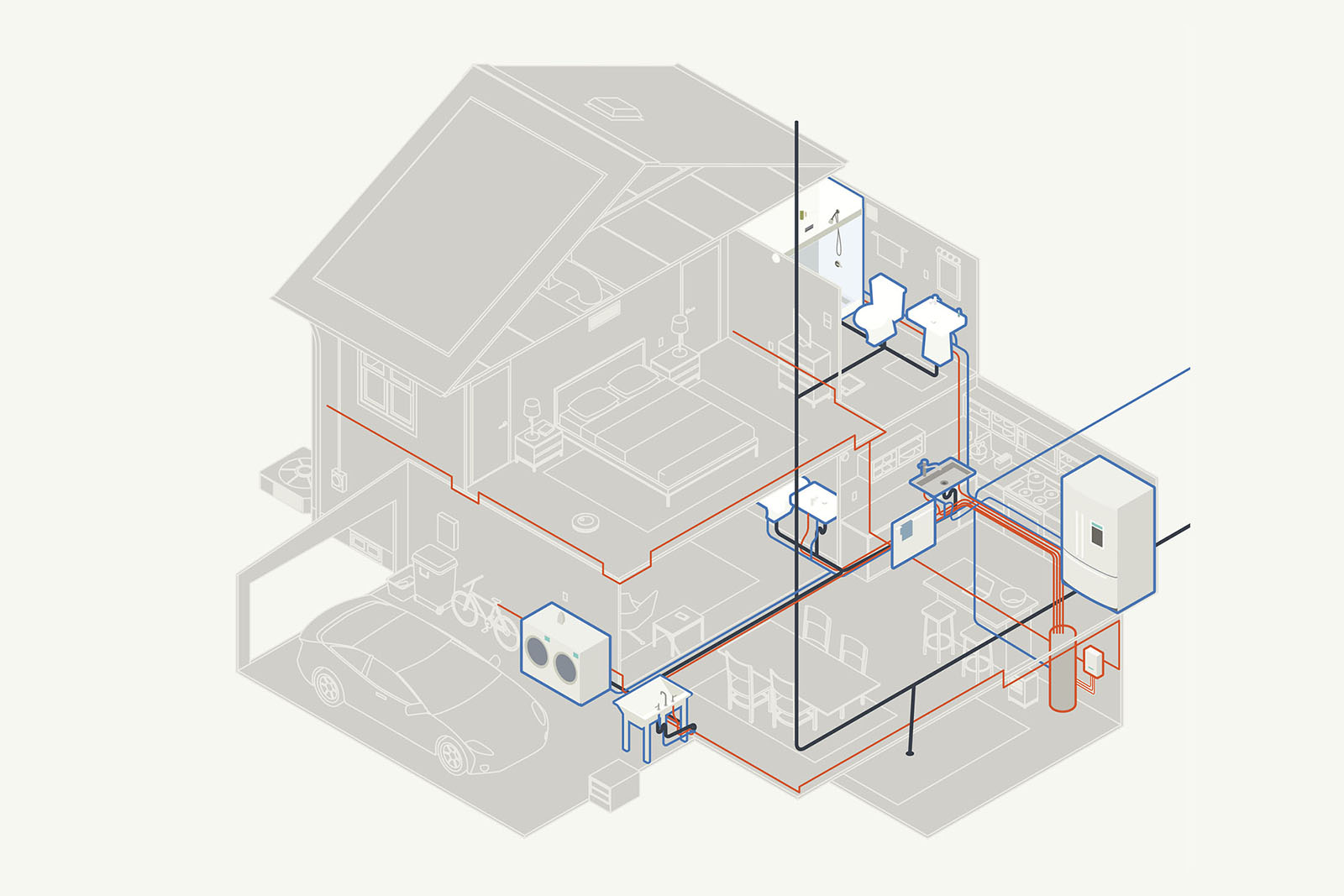Copper vs. PEX — What's the Difference?
Which type of piping should you install in your home if you decide to repipe? There are several factors you should consider when looking at copper vs PEX. These include the pH of the local water source, climate, structure of the house, and future plans for the house.
Copper is rigid piping, and often requires soldering and fittings to install. However, this is a long-lasting piping solution, as copper should last for as long as your house. Most copper piping manufacturers will offer a limited warranty for 50 years, though copper can last 70 to 80 years. If you are selling your home in the future, many buyers also prefer copper piping.
However, there are a few reasons copper piping my not be right for your home.
Copper is a material that fluctuates in price, depending on the supply chain and market, and it is often more expensive than PEX. This cost may be offset in some markets, as some contractors may charge less to install copper vs PEX, as copper is something many contractors know how to install.
Copper may not be the right choice if the water source for your home is especially alkaline with a high pH, as this may cause corrosion over many years. In areas with extreme cold, copper may not be as attractive as PEX, as water can freeze in non-insulated copper pipes causing them to burst. In more temperate climates, this is not an issue.
For city water that has chlorine or fluoride, copper is also a good choice, as there is zero chemical reaction between copper and these chemicals. Lastly, copper is bacteriostatic, meaning bacteria cannot grow in copper pipes.
PEX is an abbreviation for cross-linked polyethylene. This piping solution has been approved for use in 49 of 50 states, including California for the last decade. Cheaper than traditional copper piping, PEX is also completely resistant to acidic water and corrosion.
If you have plans for installing a water saving manifold, PEX is a good choice. PEX is also more heat conductive than copper, and will not build up scale in the pipes, as copper can do in certain situations.
That said, there are a few reasons why PEX may not be the right choice for your repiping project.
PEX can degrade quickly in sunlight and UV light, so it is not ideal for outdoor piping or areas with indoor fluorescent lighting. Water with heavy amounts of chlorine can also cause PEX piping to degrade, necessitating premature piping replacement.
Contact Us
Copper vs PEX Chart
Here is a chart of some pros and cons of both copper and PEX piping.
| Copper | PEX |
| Costs a bit more than PEX | Lower cost than copper pipes |
| Installs quickly due to ubiquitous use | Does not require soldering to install |
| 50 year limited manufacturer warranty | 25 year limited manufacturer warranty |
| Corrosion resistant | Corrosion resistant |
| Pipes can freeze in extreme cold | Freeze resistant |
| Rodent proof | Rodents can chew through PEX |
| Fully recyclable | Cannot be recycled |
| UV light does not affect copper | Can break down with extended lengths of exposure to sunlight |
| Has no reactions with chlorinated or fluoridated water | Excessive chlorine in water can create piping degradation |
| Requires more water in pipes to work at peak levels | Less water required to maintain pressure compared to copper |
| Acidic water can cause corrosion over many years | Entirely resistant to acidic water |
Ready for a Repipe Project?
The team at Wise Monkey Repipe & Construction can help you through the process of replacing the old pipes in your home.
